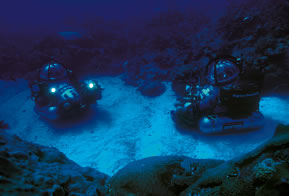Underwater exploration: Deep Worker submersibles explore the Flower Garden Banks National Marine Sanctuary in the Gulf of Mexico.
Image courtesy of Kip F. Evans
Ocean Literacy - Essential Principle 7
The ocean is largely unexplored.
Fundamental Concept 7a.
The ocean is the last and largest unexplored place on Earth— less than 5% of it has been explored. This is the great frontier for the next generation’s explorers and researchers, where they will find great opportunities for inquiry and investigation.
Fundamental Concept 7b.
Understanding the ocean is more than a matter of curiosity. Exploration, inquiry and study are required to better understand ocean systems and processes.
Fundamental Concept 7c.
Over the last 40 years, use of ocean resources has increased significantly, therefore the future sustainability of ocean resources depends on our understanding of those resources and their potential and limitations.
Fundamental Concept 7d.
New technologies, sensors and tools are expanding our ability to explore the ocean. Ocean scientists are relying more and more on satellites, drifters, buoys, subsea
observatories and unmanned submersibles.
Fundamental Concept 7e.
Use of mathematical models is now an essential part of ocean sciences. Models help us understand the complexity of the ocean and of its interaction with Earth’s climate. They process observations and help describe the interactions among systems.
Fundamental Concept 7f.
Ocean exploration is truly interdisciplinary. It requires close collaboration among biologists, chemists, climatologists, computer programmers, engineers, geologists, meteorologists, and physicists, and new ways of thinking.
You might also be interested in:
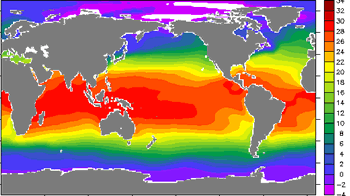
Climate in your place on the globe is called regional climate. It is the average weather pattern in a place over more than thirty years, including the variations in seasons. To describe the regional climate
...more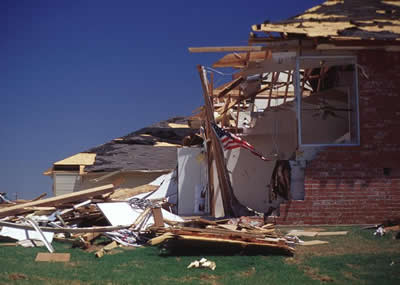
Earth's atmosphere and humans are inextricably linked. Fundamental Concept 7.1 Most living organisms on Earth are dependent on Earth's atmosphere and its processes for survival. We require oxygen for breathing;
...more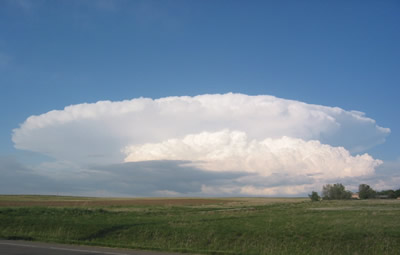
Earth's atmosphere changes over time and space, giving rise to weather and climate. Fundamental Concept 4.1 Weather is the state of Earth's atmosphere at a particular place and time. The climate of a particular
...more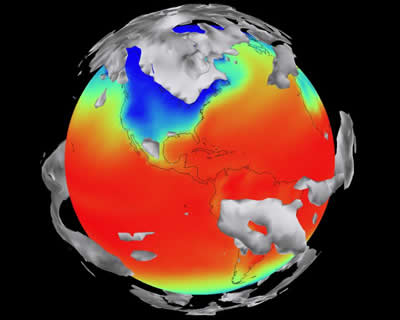
We seek to understand past, present, and future behavior of Earth's atmosphere through scientific observation and reasoning. Fundamental Concept 6.1 Our understanding of Earth's atmosphere comes from analysis,
...more
Earth has a thin atmosphere that sustains life. Fundamental Concept 1.1 Earth's atmosphere is a mixture of gases with small, but important, quantities of liquid and solid particles. Fundamental Concept
...more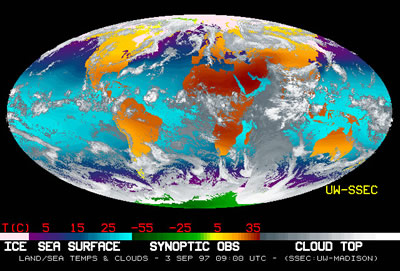
Atmospheric circulation transports matter and energy. Fundamental Concept 3.1 Horizontal and vertical energy imbalances in the Earth System produced by unequal heating of Earth's surface create movement
...more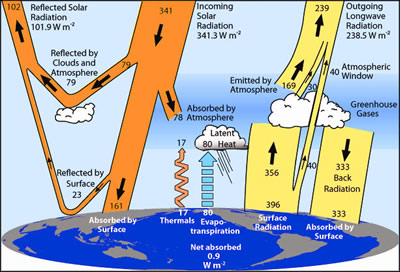
Energy from the Sun drives atmospheric processes. Fundamental Concept 2.1 Earth receives energy in the form of electromagnetic radiation from the Sun. Some of this solar energy is absorbed by the atmosphere,
...more
